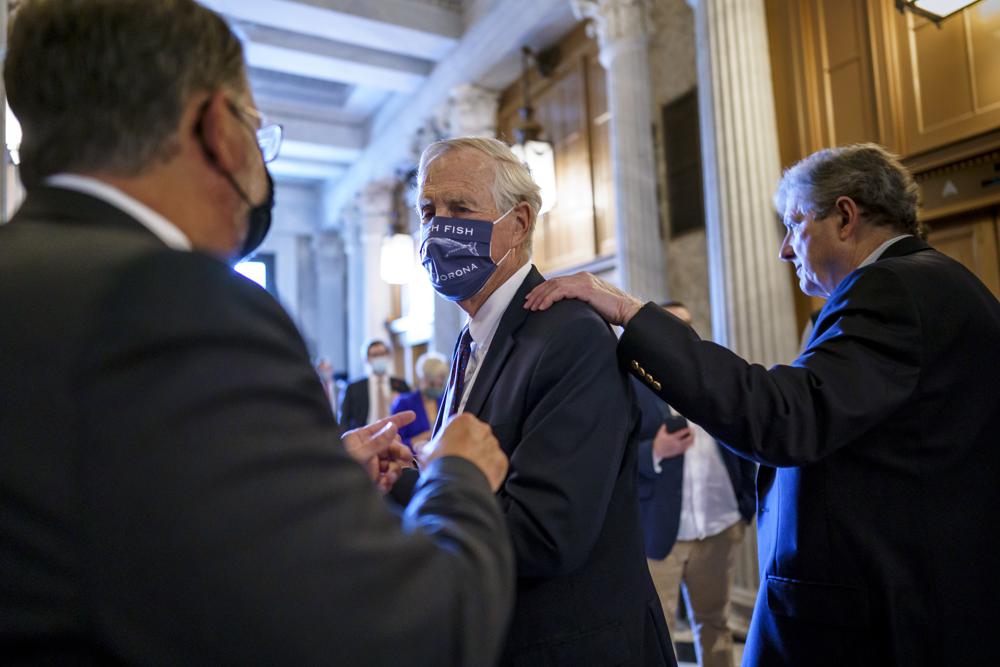After much delay, senators unveiled a nearly $1 trillion bipartisan infrastructure package, wrapping up days of painstaking work on the inches-thick Bill and launching what is certain to be a lengthy debate over President Joe Biden’s big priority.
The Infrastructure Investment and Jobs Act clocked in at some 2,700 pages, and senators could begin amending it soon. Despite the hurry-up-and-wait during a rare weekend session, emotions bubbled over once the bill was produced Sunday night. The final product was not intended to stray from the broad outline senators had negotiated for weeks with the White House.
Advertisement
“We haven’t done a large, bipartisan bill of this nature in a long time,” said Senate Majority Leader Chuck Schumer, D-N.Y. He said a final vote could be held “in a matter of days.”
A key part of Biden’s agenda, the bipartisan bill is the first phase of the president’s infrastructure plan. It calls for $550 billion in new spending over five years above projected federal levels, which could be one of the more substantial expenditures on the nation’s roads, bridges, waterworks, broadband, and the electric grid in years.
Senators and staff labored behind the scenes for days to write the massive bill. It was supposed to be ready Friday, but by Sunday even more, glitches were caught and changes made. To prod the work, Schumer kept senators in session over the weekend, encouraging the authors to finish up work.
Late Sunday night, most of the 10 senators involved in the bipartisan effort rose on the Senate floor to mark the moment.
“We know that this has been a long and sometimes difficult process, but we are proud this evening to announce this legislation,” said Sen. Kyrsten Sinema, D-Ariz., a lead negotiator. The bill showed “we can put aside our own political differences for the good of the country,” she said.
Republican negotiator Sen. Rob Portman of Ohio said the final product will be “great for the American people.”
Over the long weekend of starts and stops, Schumer repeatedly warned that he was prepared to keep lawmakers in Washington for as long as it took to complete votes on both the bipartisan infrastructure plan as well as a budget blueprint
that would allow the Senate to begin work later this year on a massive, $3.5 trillion social, health and environmental bill. Sen. John Cornyn, R-Texas, predicted: “It’s going to be a grind.” The spending is broadly popular among lawmakers, bringing long-delayed capital for big-ticket items that cities and states can rarely afford on their own.
Bipartisan support from Republican and Democratic senators pushed the process along, and Schumer wanted the voting to be wrapped up before senators left for the August recess.
The outcome with the bipartisan effort will set the stage for the next debate over Biden’s much more ambitious $3.5 trillion package, a strictly partisan pursuit of far-reaching programs and services including child care, tax breaks and health care that touch almost every corner of American life. Republicans strongly oppose that bill, which would require a simple majority for passage. Final votes on that measure are not expected until fall.
(With AP inputs)











